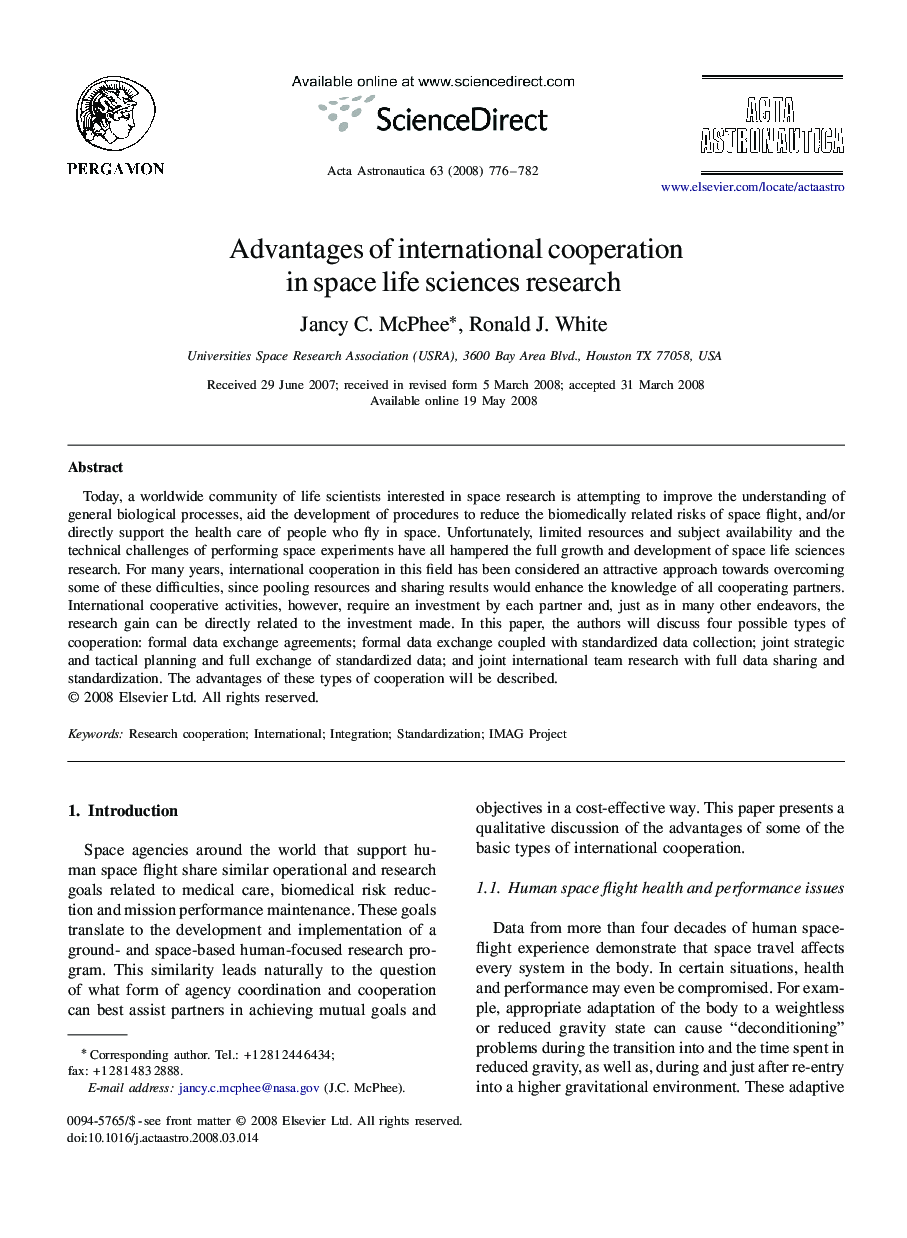| Article ID | Journal | Published Year | Pages | File Type |
|---|---|---|---|---|
| 1716825 | Acta Astronautica | 2008 | 7 Pages |
Today, a worldwide community of life scientists interested in space research is attempting to improve the understanding of general biological processes, aid the development of procedures to reduce the biomedically related risks of space flight, and/or directly support the health care of people who fly in space. Unfortunately, limited resources and subject availability and the technical challenges of performing space experiments have all hampered the full growth and development of space life sciences research. For many years, international cooperation in this field has been considered an attractive approach towards overcoming some of these difficulties, since pooling resources and sharing results would enhance the knowledge of all cooperating partners. International cooperative activities, however, require an investment by each partner and, just as in many other endeavors, the research gain can be directly related to the investment made. In this paper, the authors will discuss four possible types of cooperation: formal data exchange agreements; formal data exchange coupled with standardized data collection; joint strategic and tactical planning and full exchange of standardized data; and joint international team research with full data sharing and standardization. The advantages of these types of cooperation will be described.
